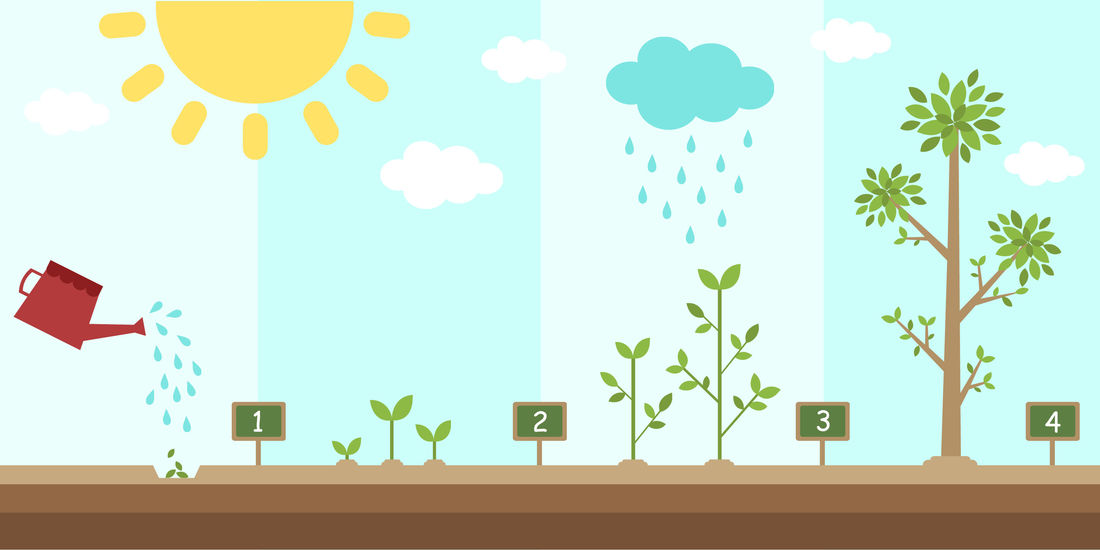- Wise Words -
Sweat the Small Stuff.
A Call to Appreciate the Little-er Things in Business.
by fergus mellon

It’s easy to think that the small things don’t matter. The business magazines we pick up at the airport rarely talk about the giant chain of little activities that an entrepreneur or senior manager did to win. It would be too boring. Instead the focus is all about the vision "thing". All about the big idea.
College doesn’t help set us up for the small stuff either. I did Political Science for my undergraduate degree and later an MBA. Did I focus on the minutiae of how a law is written when I studied Politics? Nope! I focused on big ideas: what did a political philosopher say about wealth distribution? What made a US President great? Business School was the same. We read case studies on Business Strategy, Marketing Strategy, Human Resource Strategy. I cannot remember studying all the small activities that needed to be done to deliver on the strategy. Don’t get me wrong, the big idea or company goal is important: a team needs to know where their company wants to go so they can deliver on it. However the delivery of the goal will boil down into many small actions. Below are some areas where I think small is really a big thing. Small wins, big confidence. When I took on Pricing at a large digital media company I initially wanted to “go large”. I knew that airlines were very skilled at yield management, so thought I should try to build a pricing model as sophisticated. “Not so fast,” said an informal mentor of mine (for more on Mentorship see these Wise Words) who as a very successful CEO had seen big projects come and fail, and with them the project lead. “Don’t go off and re-invent pricing as your first action. Don’t lock yourself in a room for 12 months and work to change everything. If you do this people will start asking what “that guy” is doing. Show your value to the company before you do the big stuff. Focus on finding wins that you can deliver in weeks and months.” This sage leader then went onto explain how after you have demonstrated success on the small stuff, the bigger projects are easier to succeed at. Once people believe in you, they will do the same with the big project. Small successes help build big momentum. 
Big project. Small building blocks. When you get that big project, boil it down into bite-sized pieces. This will not only make it easier for people to understand how to attack it, but it will also build-in successes along the way. As each block is complete you will then be able to show success along the way and keep not just you but everyone else motivated.
As an example, when I worked in the Design team at a leading ad tech business our region was behind in mobile revenue. We had focused on “custom” banner ads that didn’t work on mobile devices. We had to change our design strategy (that big word again!) and shift the business away from “Full Custom” ads (our first small act was to rename them “Non Standard Banners” to sound less cool) to our HTML high “Performance” ones. This project sounds boring, right? Small potatoes. Who cares? What if I told you that each client that upgraded to Performance banners boosted their revenue by around 10% and sometimes more? That’s meaningful, right? It wasn’t as easy as just calling the old ads "Non-Standard Banners" and then shutting them down. If we had we would have lost business as our clients were sophisticated and cared about how their brand was represented. They cared about the detail: logo placement, font size, arrows. We partnered with the Commercial organization to demonstrate how this change in the design strategy would benefit their clients and in doing so their book of business. We broke the project down and made every client transition a project in-itself. We conducted tests with clients when necessary to show the revenue lift. We went the extra mile on design finesse pushing the functionality to its limit and did this in partnership with other teams. We asked for product improvements to meet client needs. We looked at financial incentives to sell-in Performance banners. We worked through each mini-project (transition to Performance Banners) and celebrated success along the way. What happened? Over the course of 18 months (it was not overnight!) we moved approximately 80% (I can’t remember the exact number it was a long time ago) of the clients who were on Non-Standard to Performance Banners and instead of being a regional laggard in mobile revenue became one that delivered for our clients and the company. Own the detail. If you are accountable for the numbers, check them and check them again. If you own the detail, focus on getting it right. At one large media company, I was responsible for the annual revenue projection for Digital and Print advertising for their marquee brand. No one checked my work despite being in position for just about four months. Sure, senior leadership discussed how the revenue projection was too low (has a CEO ever complained that the business picture was too good?), but that was about it. I was the one who looked at the spreadsheet and it was only 9 months later when we hired someone to take on the tough task of revenue forecasting for these brands that my work was actually checked. The astute co-worker went through all my spreadsheets and asked a series of questions on all my assumptions. As I had double and triple checked the numbers there were no gaps, but had there been it would have been too late to do anything except for me to own up to my mistake (see this Wise Words for more on making mistakes) and for my manager (as well as my new co-worker) to potentially loose faith in me. The task is rarely too small. When I started out in my career at a Financial PR consultancy I was sad for a while. I was sad because I thought I was above the tasks assigned to me: binding presentations, dropping off proposals and setting up conference rooms for meetings. During my “I’m too good for this” stage, I saw one of our Partners dragging presentation boards into the back office where we all worked as he set up the meeting room for a client. He didn’t seem to think that he was too good for it. Instead he focused on getting the work that needed to be done for his clients done. I saw I was wrong to think I was above the small tasks. I wasn’t at the office to do only “the best” tasks, but was there to work as a team and do what I could to support it. If that meant grabbing coffee, so be it (I just learnt to get one for myself too!). The small tasks that you think might be beneath you are what can make or break your project. Sure, we don’t want to have a career of small tasks (unless we feel it is our calling), but jumping on what needs to be done and not being proud will help others see you are a team player and help your chances of getting the bigger tasks. For more on the importance of jumping in on all tasks see Harry Patz’s Wise Words. Hope that this appeal to the “power of small” has resonated, and if not I am sorry that my idea was not big enough! === Related columns: "Be a Professional of Action" and "Focus on the Results"
|



